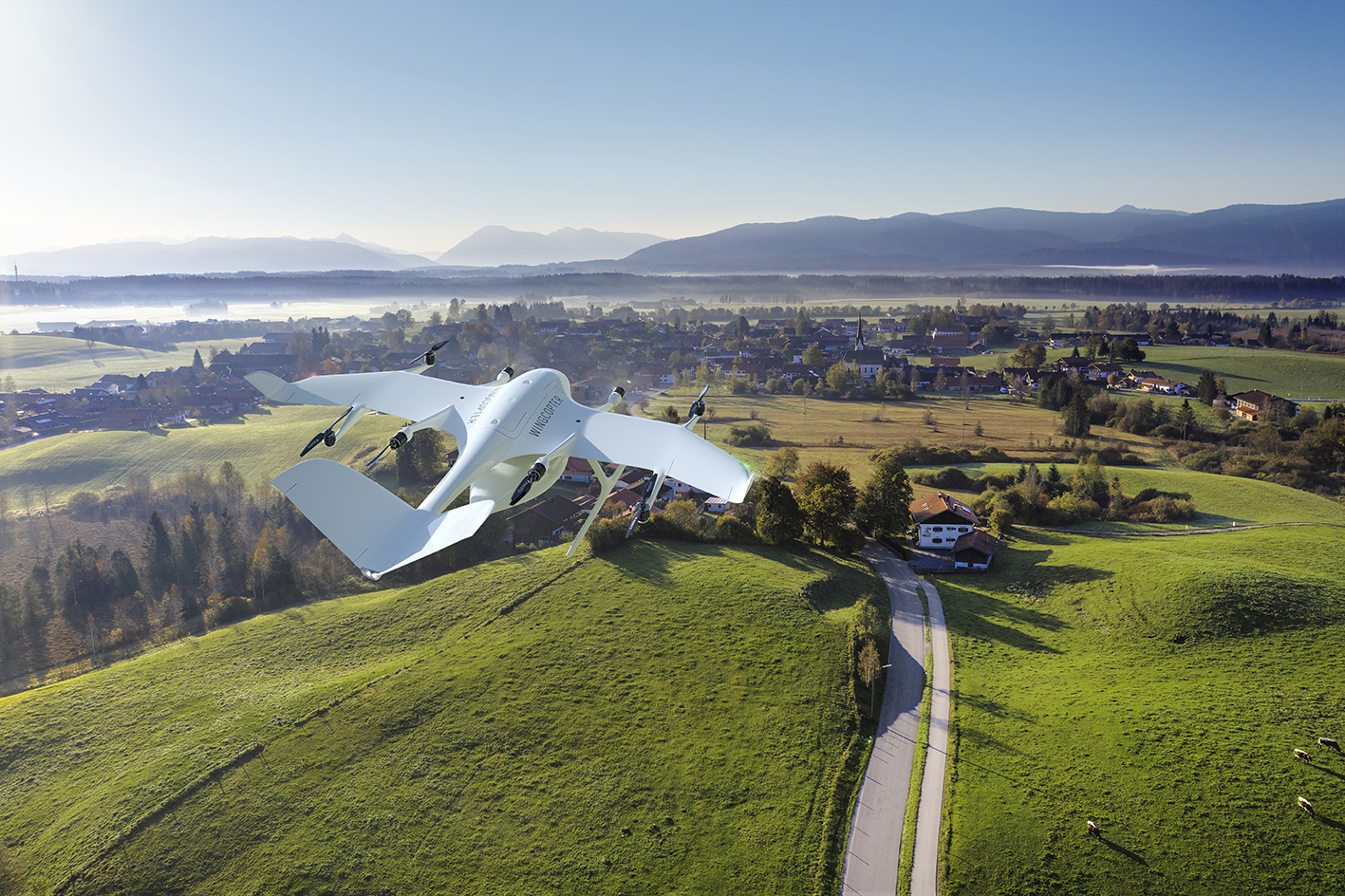
German fixed-wing drone manufacturer and aerial services company Wingcopter is partnering with the Frankfurt University of Applied Sciences to test on-demand delivery of goods using UAVs and cargo e-bicycles to people in villages and other remote rural communities.
The project is being financed by a $500,000 grant from the German Federal Ministry of Digital and Transport. It aims to improve the lives of people living outside of urban zones by bringing groceries and consumer goods to rural residents who currently must drive long distances to get them. The DroLex concept – for Drohnen-Lastenrad-Express-Belieferung (Drone Cargo Bike Express Delivery) – aims to pair Wingcopter UAVs with last mile delivery e-bicycles to effective extend supply chains by air to villages served.
Under the trial scheme, groceries and consumer goods used in daily life will be stored in medium-sized storage centers positioned amid the small communities receiving the new service. Wingcopter drones will then fly products ordered by residents to designated villages, where cyclists using cargo e-bikes will to take them to their final destinations.
The operation will get underway next spring – initially in rural areas in the southern lander of Hesse – and continue for 12 months.
The immediate objective of the on-demand drone and e-bicycle delivery program will be to improve the lives of people in remote communities by saving them the time and effort currently required to obtain most necessities. In a second phase, the project will be analyzed on environmental and economic grounds – including the potential business benefits to retailers serving rural customers by expanding their geographical reach through drone transport they can’t afford on their own.
Should all those criteria be fulfilled, German officials will develop a sustainable and scalable business model to expand the operation.
“Delivery drone applications will prevail where they serve a real need and improve lives,” said Wingcopter’s head of service solution design and planning, Selina Herzog. “This is clearly the case with our medical delivery projects in Africa and other parts of the world. However, we are convinced that ‘Drone Delivery as a Service’ offerings also have a real benefit for many people in rural areas of Germany. We are pleased to now be able to evaluate this use case over a longer period of time.”
Kai-Oliver Schocke, director of the Frankfurt UAS Research Lab for Urban Transport partnering with Wincopter in the drone and e-bicycle delivery trial, says if successful, the project could use new advances in technology to resolve problems created by the unforgiving financial realities of today’s neoliberal economies.
“In many rural areas today, supply is severely limited due to the closure of smaller, local stores,” Schocke said. “We expect that the use of delivery drones will improve the local supply in rural areas again. From a socioeconomic perspective, this type of delivery is especially beneficial to citizens with limited mobility, such as the elderly or those without their own cars. In addition, the alternative transport option can result in economic and environmental benefits for the partners involved.”
FTC: We use income earning auto affiliate links. More.



Comments